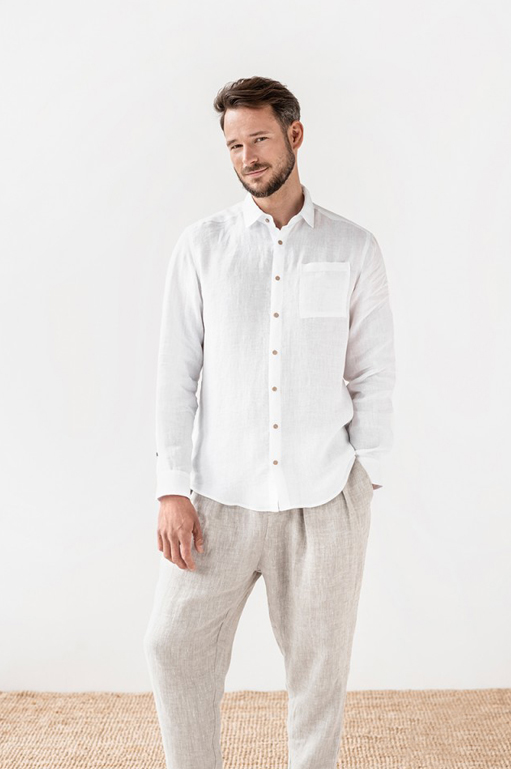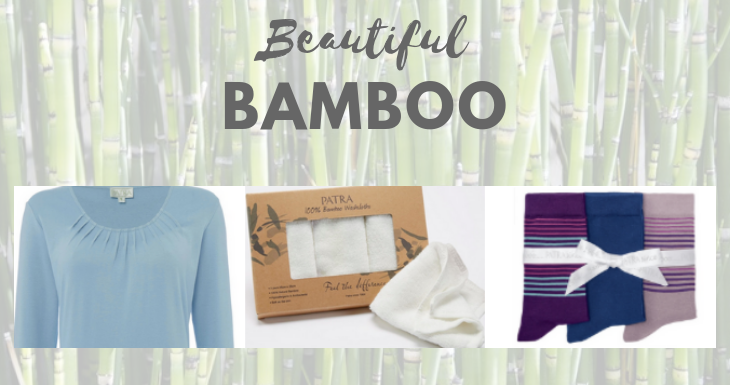Free Tips To Picking Bamboo Clothes
Wiki Article
What Is The Sustainability Of Hemp Relative To Cotton In Terms Of Use Of Water, Pesticides And Herbicides?
Hemp is considered to be a sustainable crop when compared to cotton in terms of water usage, pesticides, and herbicides due to a variety of reasons.- Water Usage-
Hemp Hemp is known as a crop with lower water needs than cotton and other crops. It is considered a drought-tolerant plant that can flourish without much irrigation. Hemp is usually cultivated using rainwater alone in many areas and is therefore a more water-efficient choice.
Cotton- Combed cotton is renowned for its high water usage. Cotton farming typically requires extensive irrigation. This could drain local resources and lead to water shortages in areas with little water. The high demand for water in cotton cultivation has raised concerns about its sustainable nature.
Herbicides are pesticides.
Hemp - Hemp's natural resistance to many species of weeds, pests and diseases reduces the use of synthetic pesticides. Although some hemp plants might require limited pest management measures to keep them healthy, the overall dependence on chemical inputs, including cotton, is lower than other crops. Organic hemp can be grown almost non-pesticide.
Cotton - The traditional cotton farming industry rely heavily on synthetic herbicides and insecticides in order to manage pests. These chemicals can have negative environmental impacts, including soil and groundwater contamination, damage to other species, and production of pesticide resistant insects.
In short hemp is regarded as to be a more sustainable plant than cotton when it comes to the use of water, pesticides and herbicides.
Hemp needs less water to grow, and is usually grown using rainfall, with minimal irrigation or even with no water at all.
Hemp's natural resistance to pests eliminates the need to apply synthetic pesticides.
Hemp is generally grown with less herbicides and pesticides than traditional cotton.
However, it's crucial to keep in mind that environmentally sustainable and sustainable practices may differ among cultivators and even regions. Additionally, organic farming methods further enhance the sustainability of hemp and cotton by minimizing the usage of synthetic chemicals and promoting the health of the soil. In terms of the impact of climate change on clothing and textiles, using organic and sustainably produced fibers will lessen the ecological footprint. Read the most popular hemp clothing for site recommendations including hemp polo shirts, hemp baja hoodie, hemp pants, hemp coat, hemp hoodie, patagonia island hemp pants, hemp garments, hemp athletic wear, hemp cotton fabric, hemp tees and more.

What Is It That Makes Hemp Clothing More Practical And Technologically Superior Than Conventional Fibres Compared To Other Fabrics?
Hemp clothing is an eco-friendly alternative that provides many functional and technical benefits over conventional fibers. Here are a few examples of how hemp clothing can be a high-performance, eco-friendly alternative.
Hemp fibers are highly absorbent and moisture-wicking. This makes hemp clothing a comfortable one to wear in a range of conditions. They are able to help remove water, which keeps the wearer cool and dry in the hot summer months.
Temperature Regulation
Hemp clothing is a great thermoregulatory properties. Hemp clothing helps keep you warm by trapping heat close to your body and also cool you down in hot temperatures by allowing heat and moisture to be able to escape. The natural regulation of temperature reduces the necessity to regularly change clothes.
Durability and long-term durability:
Hemp fibers are renowned for their durability. Hemp clothing tends to be more durable and resistant wear and tear as compared to the traditional fibers like cotton. This durability means that hemp clothes last longer, which reduces the frequency of replacements and, therefore less environmental impact.
UV Protection
Hemp fibers protect skin from UV radiation by providing the skin with UV protection. This feature can be especially useful for outdoor activities and sports.
Biodegradability:
Hemp clothing biodegrades over time, which means it will break down when it is disposed of. It's an excellent way to reduce textile waste and also the negative impact it has on the environment.
Low Environmental Impact
Hemp farming generally uses less synthetic pesticides and herbicides than conventional cotton. The hemp plant requires less water and is therefore an ideal choice for the environment. This eco-friendly aspect is further improved through organic farming.
Carbon Sequestration
Hemp can be used to remove CO2 from the atmospheric air. Hemp cultivation functions as a carbon dioxide sink which reduces greenhouse gas emissions.
Sustainable Crop Rotation
Hemp can be added to systems of crop rotation. This helps improve soil health while decreasing the chance of disease development and soil depletion. This environmentally friendly farming method is possible due to sustainable farming methods.
Versatility:
Hemp fibers may be blended with other materials (such as organic Cotton or recycled polyester) to produce eco-friendly and high performance fabric blends. This versatility allows for the development of innovative, sustainable textile products.
Low Toxicity-
Hemp is naturally low in harmful substances and does not require extensive processing with chemicals to make it, thus reducing environmental impact.
While hemp offers many eco-friendly and practical advantages however, the sustainability of clothing is also dependent on factors like dyeing techniques and transport. It is also affected by ethical work practices. Customers who wish to be environmentally conscious should choose clothing brands that use hemp and other sustainable fibres and place a high value on transparency and ethical manufacturing. Take a look at the best hemp clothing advice for blog advice including mens hemp t shirts, hemp pants womens, hemp apparel wholesale, hemp fabric, patagonia iron forge pants, patagonia hemp work pants, hemp shirts wholesale, hemp button shirt, organic hemp clothing, hemp shirts mens and more.

Bamboo Clothing Is Eco-Friendly And Incredibly Comfortable.
Bamboo clothing has many advantages when it comes to both comfort and the environment. Comfort-
Softness- Bamboo is known for its incredibly soft. It has a silky smooth texture which feels great against your skin. Bamboo clothing can be luxuriously soft, which is why bamboo clothing is an extremely popular choice for intimate clothes.
Bamboo fibers breathe well and are able to absorb moisture. Air circulates through the micro-gaps, keeping you cool in hot temperatures. Moisture wicking aids in drawing sweat away from the skin.
Thermoregulation- Bamboo clothes have outstanding thermoregulatory properties. It will keep you warm when temperatures drop by retaining the heat near to your skin. In the heat, bamboo clothing will keep you cool by allowing the heat and moisture to be able to escape. This adaptability to different temperatures is what makes bamboo clothes suitable for all-year-round wear.
Hypoallergenic Bamboo fabric is hypoallergenic, and gentle for skin that is sensitive. It is less likely to trigger irritation on the skin or allergic reactions.
Bamboo fibers naturally have antimicrobial properties and can inhibit the growth of bacteria which cause odor. This makes bamboo clothing remaining fresh, even when it is worn in the midst of physical exercise.
Environment-
Sustainability- Bamboo is an eco-friendly and renewable resource. Bamboo is one of the fastest growing plants on the planet. It requires little water and doesn't require herbicides or pesticides for cultivation. Bamboo is able to be harvested without harming the plant because it regenerates by regenerating its roots.
Bamboo is a water-efficient plant by nature. Bamboo can withstand the rigors of a small amount of water and can grow with only rainwater.
Biodegradability. Bamboo clothing will naturally decompose over time if removed. This feature reduces the quantity in the landfills of non-biodegradable fabrics.
Carbon Sequestration- Bamboos absorb carbon dioxide (CO2) from the atmosphere during their fast expansion. Bamboo cultivation is an absorber of carbon dioxide and reduces the amount of greenhouse gases and aiding in reducing climate changes.
Chemical Reduction- The manufacturing and processing of bamboo textiles typically requires fewer chemicals than other textiles. This reduces the environmental impact that manufacturing textiles has.
Closed Loop Production Some bamboo fabrics are manufactured by closed loop systems that make use of recycled chemicals as well as water, minimising production waste.
The impact on the environment of bamboo clothing can differ depending on how they are constructed and if the bamboo comes made from trees that are sustainably and sustainably managed. If you're looking to reap the greatest environmental benefits out of bamboo clothes, make sure you choose eco-friendly and ethical production practices. Take a look at the best such a good point on bamboo clothes for more examples including preemie bamboo pajamas, freefly summer hoodies, bamboo cotton shirts, bamboo activewear, childrens bamboo socks, bamboo pajama pants, bamboo dress socks, bamboo pants womens, bamboo shirts wholesale, faceplant pajamas and more.
